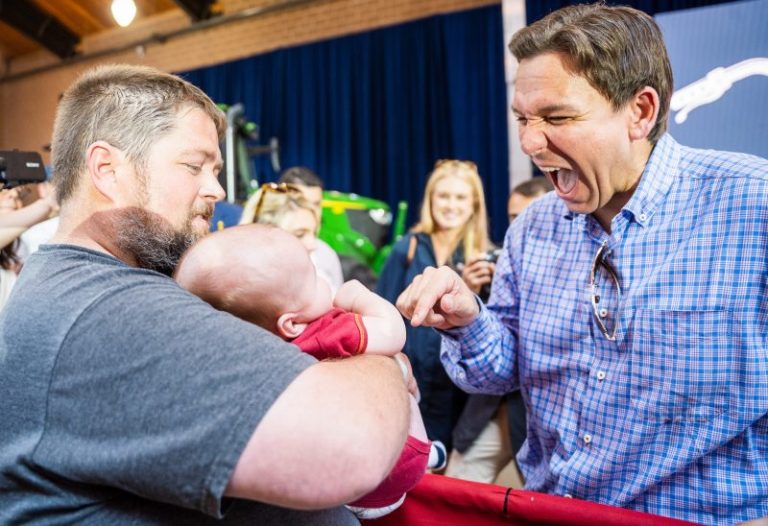There are two primary outcomes that politicians desire when they announce their candidacies for a party’s presidential nomination.
The first is the formalization of their campaigns with the Federal Election Commission. There are legal boundaries to seeking the presidency, and filing paperwork with the FEC both demonstrates compliance with those boundaries and marks the point at which candidates can begin receiving money.
But that’s the boring stuff. The central desired outcome is to begin the campaign with a bang, ginning up attention and contributions that mark an initial surge toward the eventual nomination. Candidates choreograph their announcements precisely with the intent of maximizing the amount of attention they can generate and to begin gaining ground in their push toward election.
On that latter metric, the recently announced candidacy of Florida Gov. Ron DeSantis for the Republican presidential nomination was not a success.
Let’s start with the poll numbers.
FiveThirtyEight compiles a running average of national support for the Republican candidates. On the day DeSantis announced, he trailed former president Donald Trump by 33 points. The week before his campaign launched, he was averaging 20.8 percent in the FiveThirtyEight average.
Now, he trails Trump by 32 points and sits at 21.6 percent in the polls. That does not qualify as a “surge.”
That’s just one average. The national average from RealClearPolitics (RCP) has slightly different numbers — but ones that aren’t any better. At RCP, DeSantis trailed by 33 points on the day of his announcement and had been averaging 20 percent in national polls. Now, he trails by 31 points and has the support of 21.9 percent of voters.
These are national polls, yes. State polls might indicate different movement, but state polls are also less frequent and therefore less likely to yield a reliable average. Besides, a campaign launch is a national event meant to attract national attention — and DeSantis’s launch didn’t generate a groundswell of support among primary voters.
Nor did it yield a big surge in media attention. On the day of DeSantis’s announcement, he was mentioned more frequently on Fox News than Trump, as he had been on the two preceding days. (The gray columns indicate how much more often Trump was mentioned than DeSantis on a given day.) But that was it. Since the day of the announcement, Trump has consistently been mentioned far more often.
That is partly because Trump was indicted on federal criminal charges, not generally the sort of media attention that a candidate seeks. That’s in part why the gap between Trump and DeSantis has been so much wider on CNN; Fox traditionally downplays bad news for Trump.
On both channels, DeSantis is getting less daily coverage than he was in the week before his campaign announcement.
The advent of Google has provided a different way to measure post-announcement interest: the number of searches for a candidate. Google provides that information on a scale from 0 to 100, where 100 represents the most interest seen over the given time period.
So, on the day of DeSantis’s announcement, search interest in him peaked. Now, it’s well below where it was in the week before he formally launched his campaign.
And that’s just compared to himself. If we again compare him to Trump, we see that interest in the governor has consistently trailed interest in the former president — even before Trump’s recent indictment spike. There were a few days — three — when people were searching for DeSantis more than Trump. That is long past.
None of this means that DeSantis can’t eventually beat Trump, of course. The advent of last week’s indictment could reshape the contest significantly.
But Trump was outperforming DeSantis on all of these metrics even before the indictment was announced. If the indictment doesn’t derail Trump — as so many issues have failed to do in the past — it seems unlikely that DeSantis’s launch put him on a trajectory to surpass the front-runner.
One other point is worth raising. Yes, a lot of the cable-news conversation about Trump has centered on his indictment. But a lot of the discussion about DeSantis on the day of his announcement centered on its clumsy rollout on Twitter, an issue that factored into most early stories about his candidacy.
It turns out to have been predictive. The launch didn’t go that well overall, either.

